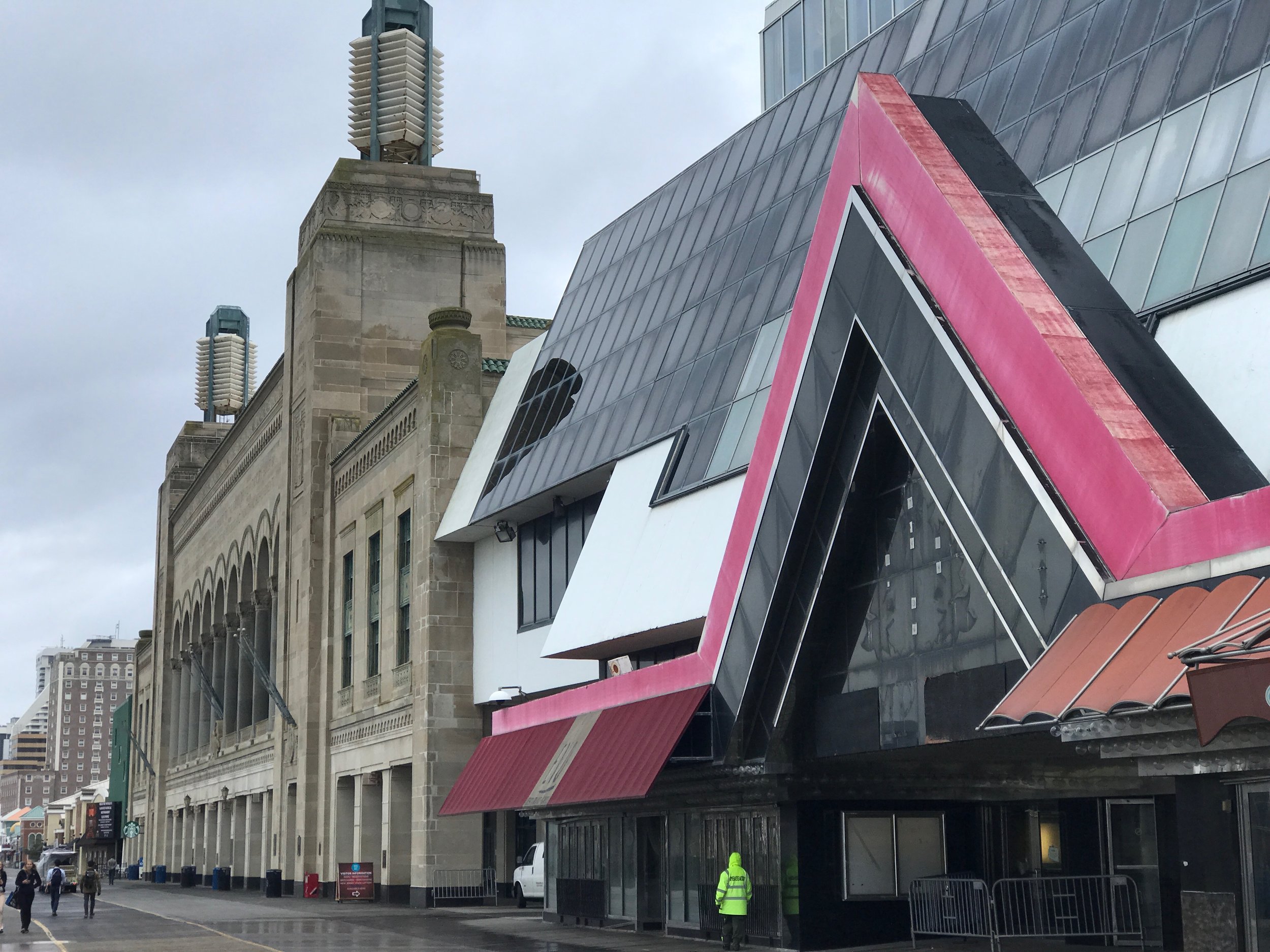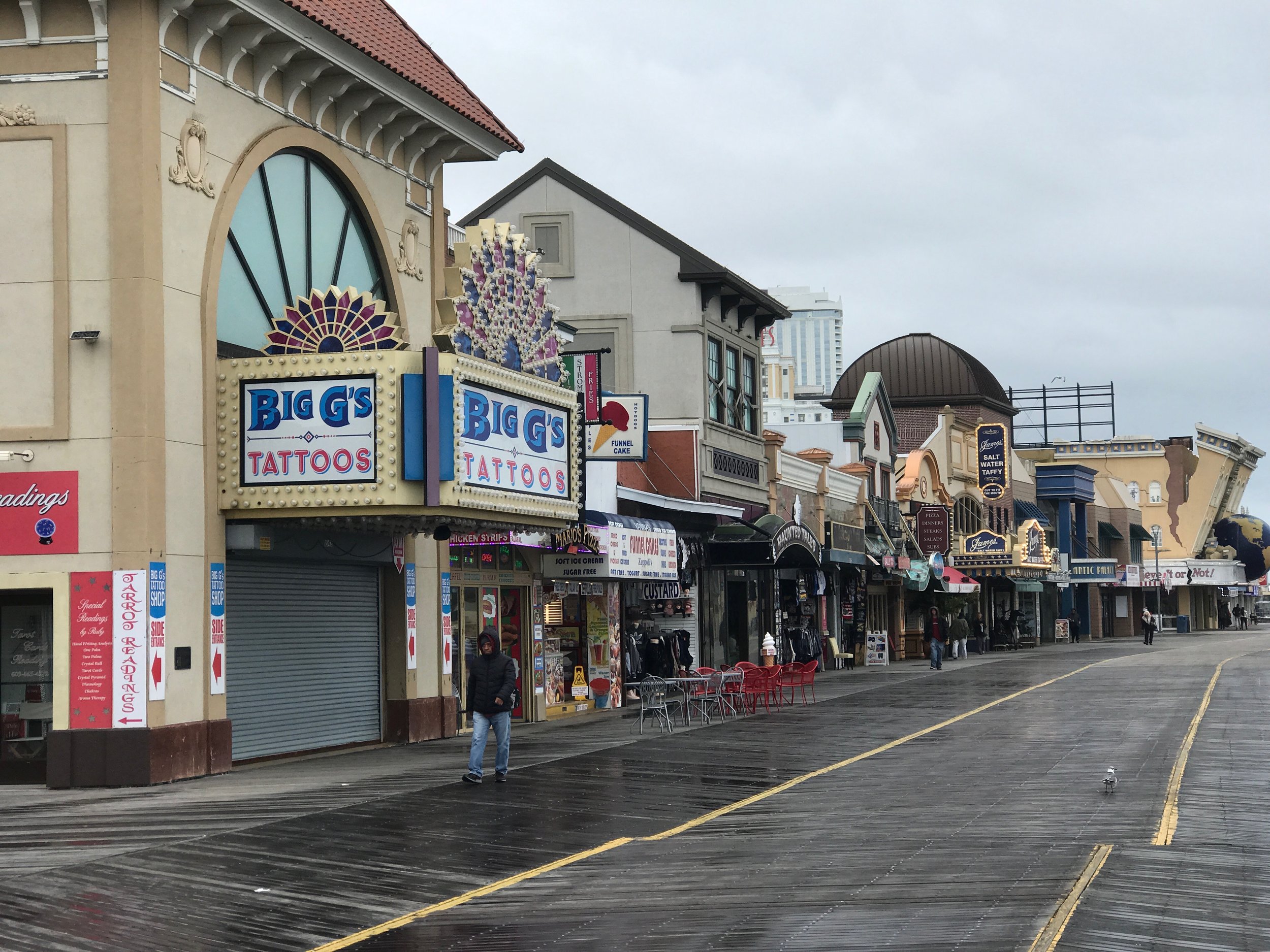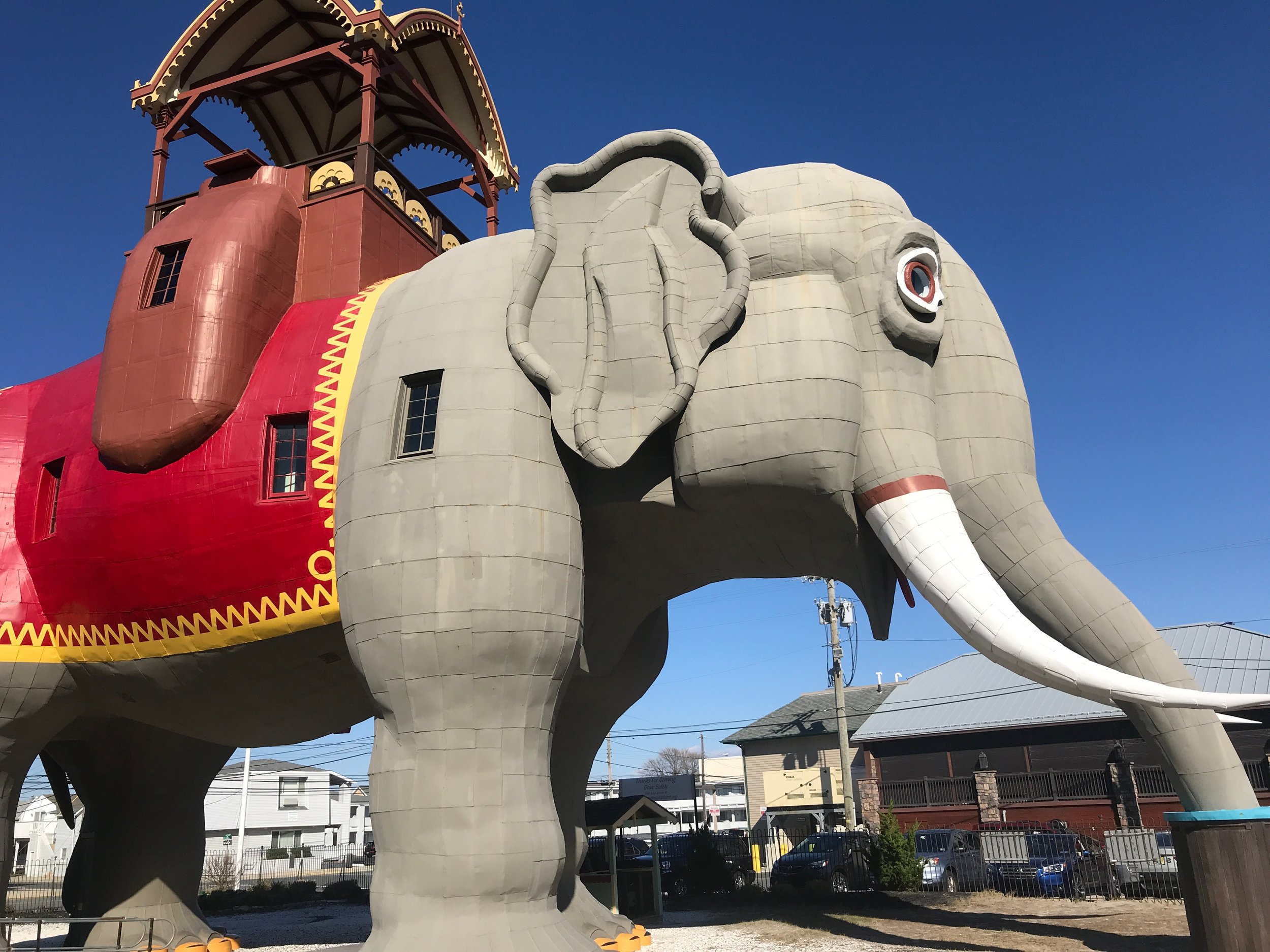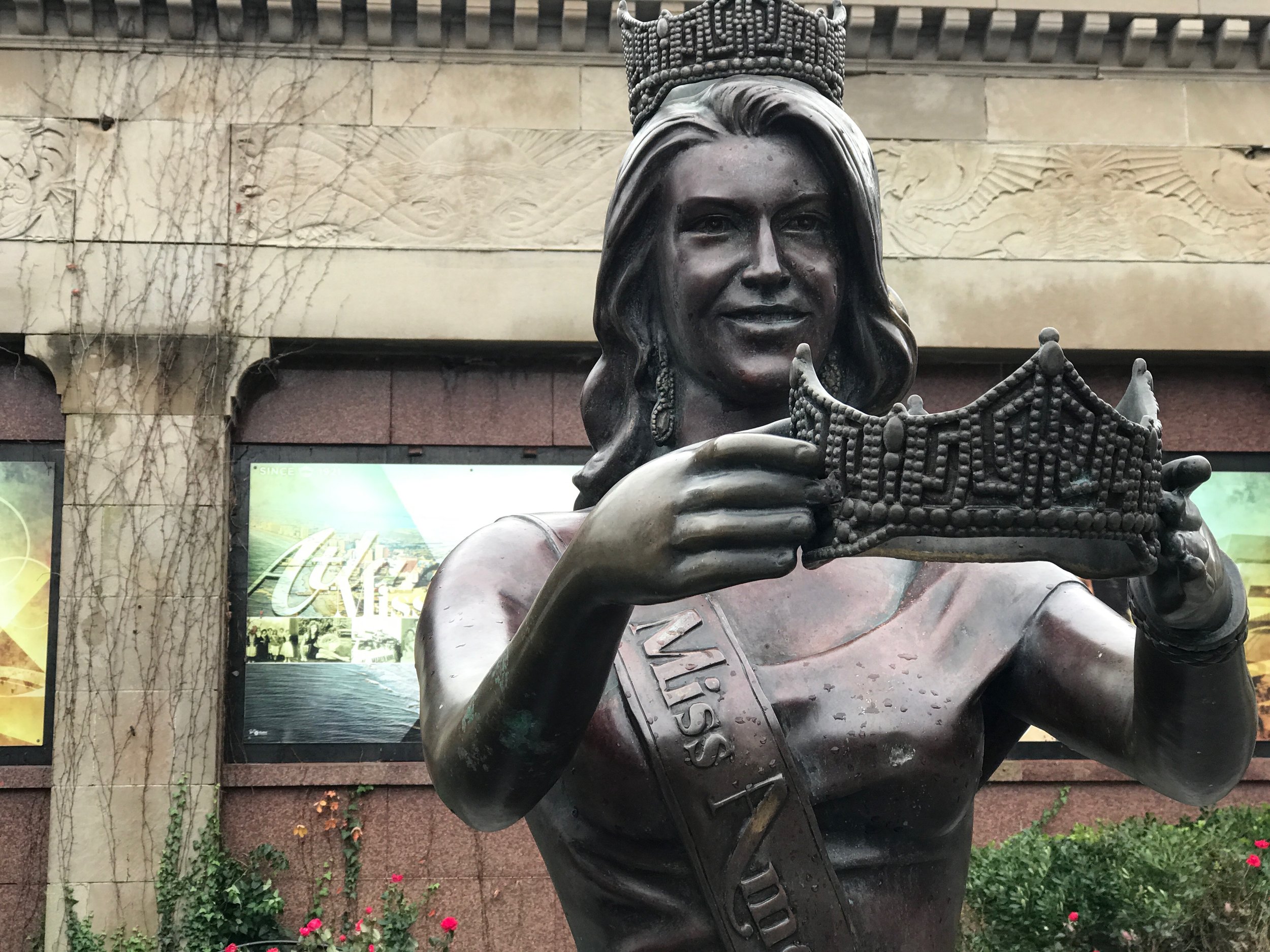Playing the game in Atlantic City
By Rick Holmes
Nov. 16, 2018
Atlantic City, N.J. – This place was built on dreams, vice and real estate deals.
Atlantic City started with a real estate deal. Dr. Jonathan Pitney, who believed the central New Jersey coast was good for people’s health, convinced investors to build the Camden & Atlantic Railroad. Atlantic City incorporated in 1854, the same year the railroad began delivering Philadelphians to the newly-built hotels and spas on the beach.
It was a hit from the start. Nineteenth century Philadelphia was awful in the summer, the air thick with industrial smoke, its crowded neighborhoods breeding disease and crime. People craved fresh air, and they found it in the ocean breezes of Atlantic City. Soon a broad boardwalk was built to connect the hotels with a growing assemblage of cheap amusements. Lucy, the World’s Largest Elephant, drew visitors to Margate and carnival rides drew them to Steel Pier. Where better to feel the fresh ocean breeze than at the top of a ferris wheel?
Nucky Johnson brought the vice.
Enoch L. Johnson was the undisputed boss of Atlantic City in its Depression-era heyday. Nucky controlled law enforcement – he was sheriff of Atlantic County, as his father had been before him. He controlled the Republican political machine. And he controlled crime, taking a piece of all the action.
Nucky ran his empire from a luxurious suite on the ninth floor of the Ritz-Carlton on the Boardwalk. He always sported a red carnation and he lived large.
When Prohibition forced America to go dry, Nucky Johnson declared that Atlantic City would stay exuberantly wet. A steady supply of liquor came ashore on bootleggers’ boats and it flowed unhindered in bars up and down the Boardwalk.
Atlantic City captured the imagination of a nation mired in depression. It was a place of sunny days and romance under the boardwalk; a place of dreams, where boxers won heavyweight crowns and horses dove into small pools of water. It was the home – still is, AC backers are quick to remind you – of the most glamorous competition of all: the Miss America Pageant.
They weren’t just dreams of summer fun. They were dreams of getting rich – especially getting rich by investing in real estate. And for those who couldn’t play that game for real, there was Monopoly. Introduced in 1933, Monopoly is set in Atlantic City. Players are developers who buy, sell and rent property on Atlantic City streets. Take over a neighborhood and you can double the rent. Trade four houses for a hotel. Build a hotel on Boardwalk or Park Place and you’ve got it made.
No wonder Donald Trump wanted to play in Atlantic City.
Atlantic City went into a long decline after World War II, as Americans found other vacation destinations. Eventually, developers and politicians turned to a different vice to bring people to the Boardwalk. It became the first city east of Las Vegas to offer casino gambling.
Trump jumped into Atlantic City in the mid-‘80s, building the garish Trump Plaza right next to the majestic art deco Boardwalk Hall, the city’s original convention center. Trump brought an old-style Atlantic City flair back to the Boardwalk, along with big-time boxing and the WWF. His empire, powered by hype and other people’s money, grew to include four major casinos. The crown jewel was the Trump Taj Mahal, the city’s first billion-dollar building, financed by $700 million in junk bonds.
But Trump overplayed his hand. He borrowed too much and spent too much. He helped saturate the Atlantic City market, and as recession and competition from newly-legal casinos in other states cut into his revenue, it all came tumbling down. His resort company filed for bankruptcy in 1991, 2004, 2009 and 2014.
The feds eventually caught up with Nucky Johnson, who did four years in prison for income tax evasion. But Trump landed on his feet. In October 2016, the Taj Mahal closed for good, just before its builder moved into the White House.
The Ritz Carlton, Nucky Johnson’s headquarters, still stands on Boardwalk, but now it’s condos, not a luxury hotel. The Trump Plaza sits empty and is due to be demolished soon. Five casino hotels closed between 2014 and 2016, but two more opened this year, including the Hard Rock, on the site of Trump’s Taj Mahal.
Atlantic City is constantly changing and still the same. It was always a working class resort, and there’s still as much grit as glitz. But people still come, for the sun and sand, and the dream of hitting a million-dollar jackpot. The game is still on and the house always wins.
Rick Holmes can be reached at rick@rickholmes.net. You can follow his journey at www.rickholmes.net. Like him on Facebook at Holmes & Co, on follow him on Twitter @HolmesAndCo.



